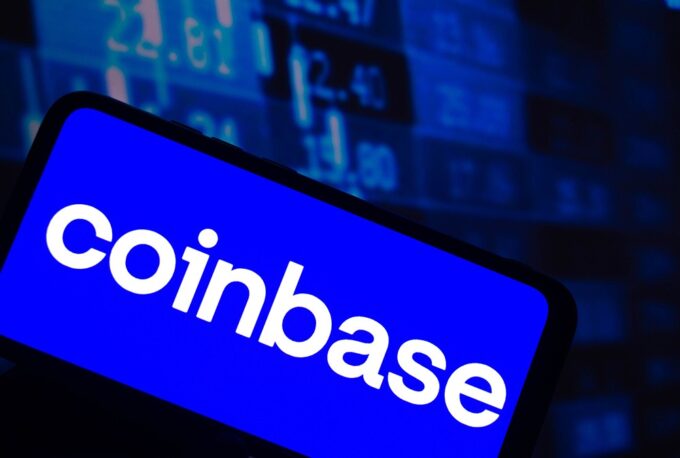In the ever-evolving landscape of digital currency, Coinbase stands out as a leading platform for buying, selling, and storing cryptocurrencies. However, its popularity also makes it a prime target for scammers. The surge in Coinbase scams is a growing concern, and recognizing the importance of this issue is the first step towards safeguarding your digital assets.
This article is not just an exploration of the problem; it’s a comprehensive guide, offering practical tips and actionable steps for anyone who might find themselves entangled in the deceptive webs spun by modern-day digital thieves on the Coinbase platform.
Understanding Coinbase Scams
Scammers are continually crafting new ways to swindle Coinbase users, employing tactics like phishing, creating counterfeit applications, and orchestrating Ponzi schemes. These fraudulent activities are not just theoretical threats; they manifest in the real world, causing substantial financial damage to unsuspecting victims.
Take, for instance, the phishing scam where users receive an official-looking email prompting them to reveal their login credentials, only to have their accounts drained by the imposters. Such incidents underscore the critical need for constant vigilance and a profound understanding of the types of scams prevalent in the Coinbase ecosystem.
Prevention is Key

Source: freepik.com
The adage ‘prevention is better than cure’ holds particularly true in the context of Coinbase scams. Proactive measures are your first line of defense against these digital predators. It begins with the basics, such as scrutinizing every email, link, or application associated with Coinbase before interacting with them.
But it doesn’t end there. Strengthening your Coinbase account’s security is equally vital. Features like two-factor authentication are not just add-ons; they are essential shields that protect your digital treasures from the prying eyes and greedy hands of online scammers.
Identifying a Coinbase Scam
Recognizing a Coinbase scam requires a keen eye and a healthy dose of skepticism. Scammers often leave behind subtle clues—unusual email addresses, suspicious links, or high-pressure tactics insisting on immediate action.
These red flags are not always conspicuous, but learning to spot them can be the difference between safeguarding your investment and losing it to a scammer. Trusting your instincts plays a crucial role too. If something about a Coinbase communication doesn’t feel right, it’s probably because it isn’t.
Immediate Actions When Scammed
The realization that you’ve fallen victim to a scam can be overwhelming, but time is of the essence. The first step is to sever your digital connection by disconnecting from the internet, thereby limiting the scammer’s access to your device and accounts.
Equally important is to resist the panic-induced urge to click on any more suspicious links or divulge additional information. This is the moment for composed and decisive action, not rash decisions that could further compromise your security. This would be a moment when it’s wise to seek legal help and MDF Law can be a great partner in this domain.
Reporting the Scam

Source: freepik.com
Once you’ve taken immediate measures to secure your accounts, the next crucial step is reporting the incident. Contacting Coinbase’s customer support should be your priority. They are your allies in this unfortunate situation, equipped to guide you through their official protocol for handling such incidents. Providing them with detailed information is key to effectively addressing your case.
Depending on the severity and nature of the scam, involving law enforcement agencies might be necessary. Remember, reporting the scam is not just about seeking resolution for your case; it’s about contributing to a broader effort to combat and prevent future scams.
Contacting Your Financial Institution
When you discover that your funds have been illicitly siphoned from your account, the immediate step is to contact your bank or financial institution. This is not just a procedural formality; it’s a critical action that can significantly influence the trajectory of your financial recovery.
Informing your bank puts into motion a series of protective measures, allowing them to monitor for suspicious activity and, when possible, halt further unauthorized transactions. This quick response can be the difference between a contained breach and a financial catastrophe. As you navigate this conversation, ensure clarity and provide all necessary details to empower your institution to act swiftly and effectively on your behalf.
Legal Recourse and Authorities
While the digital nature of cryptocurrency can make legal recourse seem daunting, there are avenues available to victims of Coinbase scams. The law may feel like a labyrinth, but understanding your rights and the resources at your disposal can be empowering. Initiating a complaint with regulatory authorities is a concrete step towards seeking justice.
Bodies like the FBI’s Internet Crime Complaint Center are not just symbolic entities; they are pivotal in the fight against digital crime, offering a beacon of hope and a means of recourse for victims. By engaging with these organizations, you’re not only seeking justice for yourself but also contributing to the broader battle against online scams.
Seeking Cybersecurity Experts

Source: freepik.com
In the wake of a scam, especially one involving malware or hacking, the expertise of cybersecurity professionals becomes invaluable. These are not just tech-savvy individuals; they are guardians at the frontier of your digital safety. Finding a trustworthy cybersecurity expert might seem daunting, but the peace of mind they offer makes the search worthwhile.
They don’t just patch up the breaches; they fortify your digital defenses, ensuring that your digital assets are guarded against future threats. In the digital age, the importance of securing your digital assets cannot be overstated, and these experts are your allies in this ongoing battle.
Educating Others
Sharing your experience with a Coinbase scam isn’t just about catharsis; it’s a powerful tool in the fight against digital deception. By speaking out, you transform your experience from a personal setback into a communal warning.
Educating your friends and family about the intricacies of Coinbase scams isn’t just a friendly gesture; it’s an act of empowerment. Providing them with resources and knowledge isn’t just helpful; it’s a shield you offer them against the predators lurking in the digital shadows.
Staying Informed and Updated
In the ever-evolving landscape of cryptocurrency, staying informed isn’t just about curiosity; it’s a necessity for safeguarding your assets. The nature of scams is as mutable as the technology they exploit, making constant vigilance and education not just beneficial but essential.
Subscribing to cryptocurrency news and security alerts isn’t just about staying informed; it’s about being proactive in your digital defense. Staying attuned to Coinbase’s official communications isn’t just recommended; it’s a cornerstone of maintaining the security of your digital assets.
Conclusion and Hope

Source: thetechedvocate.org
As we conclude, let’s reflect on the journey we’ve embarked upon in this blog post. From the initial shock of discovering a scam to the empowering steps towards recovery and resilience, each phase is pivotal in navigating the aftermath of a Coinbase scam. It’s a journey marked not just by challenges but by the strength and resolve that each challenge invokes.
To those who have experienced such scams, let your story be one not just of adversity but of recovery and empowerment. Remember, the vigilance you maintain and the proactive measures you take are not just strategies; they are testaments to your resilience in the face of digital adversity.







